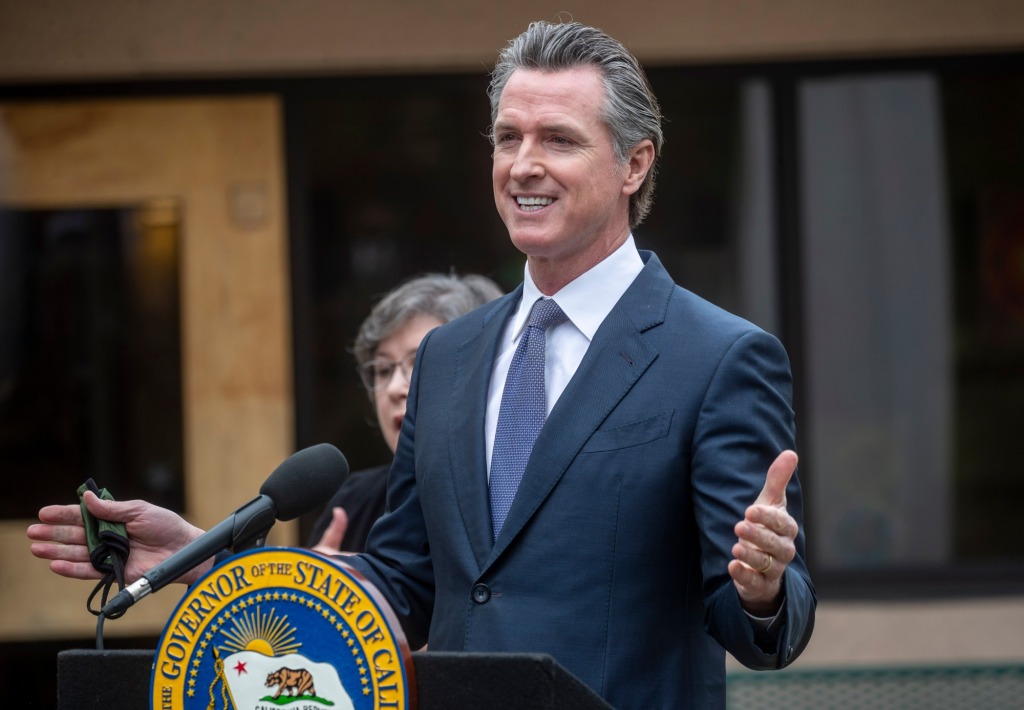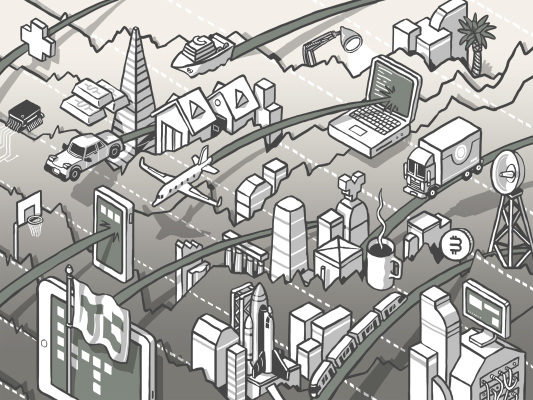Gov. Gavin Newsom unveiled a proposal on Wednesday to funnel $11 billion in relief to Californians in the form of $400 debit cards along with a freeze on gas tax increases and three months of free public transportation.
The governor’s move means every key player in Sacramento has weighed in to lessen the pain of surging gas prices amid a booming state budget surplus. Some form of rebate is now all but certain, but the details remain controversial.
Under Newsom’s proposal, registered vehicle owners would be eligible for $400 for each vehicle they own, capped at $800 for two vehicles. There is no income limit to the direct cash-back program, which includes electric vehicle owners but excludes people without cars — a sore spot for many lower-income residents.
The direct payments would total $9 billion in relief, Newsom’s office said.
“That direct relief will address the issue that we are all struggling to address – and that’s the issue of gas prices,” Newsom said in a video statement.
If the legislature agrees, Californians could see debit cards in the mail as soon as July, the governor’s office said.
The package would also provide $750 million in grants to allow transit agencies to provide free rides for three months and over a billion dollars in funding to pause tax increases on gasoline and a portion of the diesel fuel sales tax.
Alicia Trost, a BART spokesperson, said the agency is “delighted” that there could be a new source of transit funding, though the details remain unclear.
“Based on his announcement it’s a grant program. It would be an application, so (the funding) is not guaranteed,” she said. “We just don’t know yet if it will be an impact to BART and BART riders.”
This latest package comes ahead of budget negotiations between the governor and lawmakers as they look to return some of the state’s surplus tax revenues to Californians. The legislature is eyeing a constitutional amendment, known as the “Gann Limit,” which would force them to return money directly to taxpayers if they don’t come up with their own proposals to address excess revenues.
Democratic leaders agree they need to address the skyrocketing fuel prices and rising costs of living. But divisions have emerged in Sacramento over whether the state should be channeling money back into the pockets of billionaires alongside their lower-income neighbors.
Some, such as Adina Levin, were not impressed.
“So riders get 3 months of free transit and then the agencies run out of money to run the service, and the bus comes once an hour?” tweeted Levin, a co-founder of the group Friends of Caltrain.
So riders get 3 months of free transit and then the agencies run out of money to run the service, and the bus comes once an hour? https://t.co/ASjocNcXL7
— Adina Levin (@alevin) March 23, 2022
In recent weeks there has been a flurry of proposals aiming to put cash back into Californians’ wallets as gas prices break records on a near-daily basis, hitting an average $5.87 a gallon and approaching $6 in the Bay Area.
Last week a group of mostly Democratic lawmakers outlined their proposal to give every taxpayer $400, a plan that was not linked to vehicles or income. Meanwhile, Assembly Speaker Anthony Rendon is working on an alternative proposal to provide a minimum of $200 rebates — but only for taxpayers making $250,000 or less.
Meanwhile, Republicans, who are a small minority in the legislature, have called for immediate relief by suspending the state’s 51-cent gas tax. Democrats rejected this proposal, saying it would upend funding for roadway improvements and benefit oil companies.
Newsom’s gas relief plan is different. Along with the $400 direct payments per vehicle, it proposes:
- $750 million in “incentive grants” to transit agencies to provide free transit for three months.
- Up to $600 million to pause part of the sales tax on diesel for one year.
- $523 million to pause an inflation-related increase in California’s gas tax.
- $500 million in biking and walking-focused transportation projects
- Quicker spending of $1.75 billion from an earlier proposal to promote more zero-emission passenger vehicles and charging infrastructure.
Newsom said his office will begin negotiating with lawmakers to finalize a gas-relief package as soon as possible.
Monica Mallon, who doesn’t own a car and relies on Bay Area transit, said the proposal would on balance be a good deal for her.
“Obviously, they are catering to car owners,” said Mallon, a transit advocate who takes VTA from her home in San Jose. “But I’m going to save hundreds of dollars. And that really does make a difference.”










